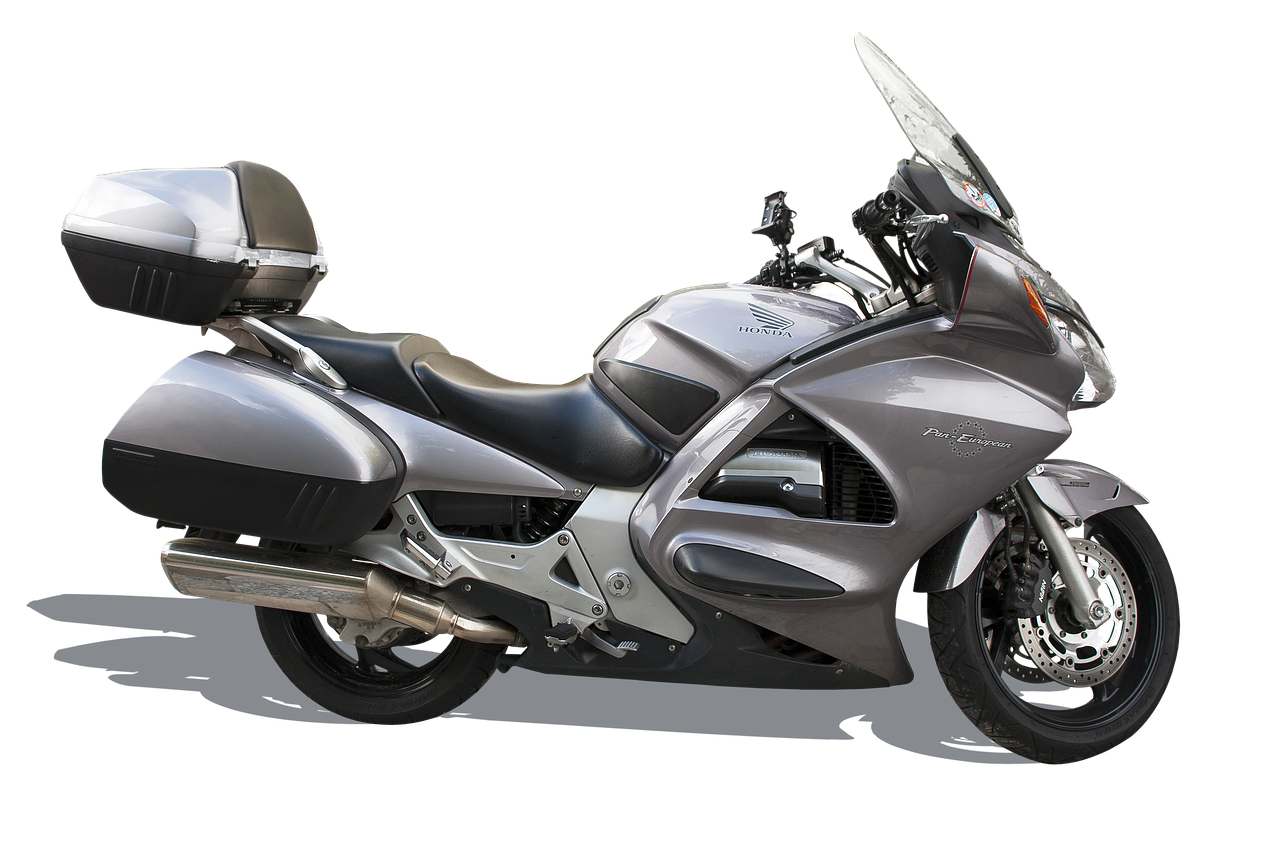When it comes to purchasing a used Honda Civic, understanding the intricacies of the market is essential. This guide will provide you with comprehensive strategies and insights to ensure that you secure the best deals while gaining a thorough understanding of market trends, pricing, and vehicle conditions.
Understanding the Honda Civic Market
Before diving into the buying process, it is crucial to gain insights into the current market trends for used Honda Civics. Factors such as popular models, pricing fluctuations, and demand levels can significantly influence your buying decisions. Researching these aspects will empower you to make informed choices.
Key Factors to Consider When Buying
- Mileage: Lower mileage often indicates less wear and tear.
- Service History: A well-documented service history can signal a well-maintained vehicle.
- Overall Vehicle Condition: Inspect both the exterior and interior for signs of damage or neglect.
Evaluating Vehicle History Reports
One of the most critical steps in the buying process is obtaining a vehicle history report. This report can reveal previous accidents, title issues, and service records, helping you avoid potential pitfalls.
How to Obtain a Vehicle History Report
There are various ways to obtain a vehicle history report, including online services like Carfax or AutoCheck, as well as resources provided by dealerships. This verification process is vital for assessing the authenticity of the vehicle’s condition.
Inspection and Test Drive Tips
Conducting a thorough inspection and taking the car for a test drive are essential steps. Pay attention to the performance, listen for unusual noises, and check all features to ensure the vehicle meets your expectations.
Negotiating the Best Price
Effective negotiation can lead to significant savings. Knowing the market value of the vehicle and leveraging the information gathered during your research can strengthen your position during negotiations.
Researching Market Prices
Utilize online platforms and local listings to compare market prices for used Honda Civics. This research will help you make a strong case during negotiations and avoid overpaying.
Financing Options for Used Honda Civics
Understanding the various financing options available is crucial for managing costs effectively. Options may include traditional loans, leasing agreements, and special dealership offers.
Post-Purchase Considerations
After purchasing your used Honda Civic, consider essential aspects like maintenance, insurance, and warranties to ensure your vehicle remains in optimal condition for years to come.

Understanding the Honda Civic Market
When considering a used Honda Civic, it’s essential to understand the current market trends that can significantly impact your buying experience. The Honda Civic has long been a favorite among consumers for its reliability, fuel efficiency, and overall performance. As such, it’s crucial to stay informed about which models are currently in demand, how pricing fluctuates, and the factors that influence these trends.
Popular Models: Recent data indicates that models like the Honda Civic EX and the Honda Civic Si are particularly sought after. These models often feature upgraded technology and performance enhancements, making them appealing to a broad audience. Additionally, the Honda Civic Hatchback has gained traction for its versatility and sporty design.
Pricing Fluctuations: Prices for used Honda Civics can vary widely based on several factors, including the model year, mileage, and overall condition of the vehicle. Typically, you might see price ranges from around $15,000 to $25,000, depending on these variables. It’s important to monitor local listings and online marketplaces to get a sense of the going rates in your area.
Demand Levels: The demand for used Honda Civics remains high, especially in urban areas where fuel efficiency is a priority for many drivers. Seasonal trends can also affect availability and pricing, with higher demand often seen in the spring and summer months as consumers look to purchase vehicles for road trips and vacations.
By keeping these factors in mind, you can make more informed decisions when purchasing a used Honda Civic. Understanding the market trends will not only help you find the right model but also ensure you secure a fair price that reflects the vehicle’s true value.

Key Factors to Consider When Buying
When considering the purchase of a used Honda Civic, it’s crucial to evaluate several key factors that can significantly impact your buying decision. The Honda Civic is known for its reliability and fuel efficiency, making it a popular choice among used car buyers. Here are essential aspects to consider:
- Mileage: The mileage on a used Honda Civic is one of the most important indicators of its overall condition. Generally, lower mileage suggests less wear and tear. However, it’s also essential to consider how the car was driven; highway miles are typically less taxing than city driving.
- Service History: A comprehensive service history can provide valuable insights into how well the vehicle has been maintained. Look for records of regular oil changes, tire rotations, and any major repairs. A well-documented service history can indicate a responsible previous owner.
- Overall Vehicle Condition: Conduct a thorough inspection of the vehicle, both inside and out. Check for signs of rust, dents, and scratches on the exterior, and assess the condition of the interior upholstery and dashboard. Don’t forget to examine the tires and brakes, as these can be costly to replace.
- Test Drive Experience: Always take the car for a test drive. Pay attention to how it handles, the responsiveness of the brakes, and any unusual noises. This firsthand experience can reveal potential issues that may not be apparent from a visual inspection alone.
- Vehicle History Report: Obtaining a vehicle history report is vital. This report can reveal if the car has been in any accidents, has a salvage title, or has undergone significant repairs. Services like Carfax or AutoCheck can provide this information.
By considering these factors, you can make a more informed decision when purchasing a used Honda Civic, ensuring that you choose a vehicle that meets your needs and expectations.
Evaluating Vehicle History Reports
When purchasing a used vehicle, especially a popular model like the Honda Civic, understanding the vehicle’s history is crucial. Vehicle history reports serve as a vital tool in this process, offering insights that can significantly influence your buying decision. These reports provide a comprehensive overview of a vehicle’s past, including any previous accidents, title issues, and service records.
One of the primary reasons to obtain a vehicle history report is to uncover previous accidents. Even minor accidents can lead to hidden damage that may affect the car’s performance and safety. A thorough report will detail any reported incidents, allowing you to assess the potential risks involved in your purchase.
In addition to accident history, vehicle history reports also highlight title issues. This includes information on whether the car has been salvaged, rebuilt, or has any liens against it. Understanding the title status is essential to ensure that you are not purchasing a vehicle with legal complications that could arise later.
Another critical aspect covered in these reports is the vehicle’s service records. Regular maintenance is key to a vehicle’s longevity and reliability. By reviewing the service history, you can determine if the previous owner adhered to recommended maintenance schedules. This information can help you gauge the overall condition of the vehicle and predict potential future repairs.
Obtaining a vehicle history report is straightforward. You can access these reports through various online services, such as Carfax or AutoCheck, or request them from dealerships. It’s a small investment that can save you from costly mistakes in the long run.
In summary, evaluating vehicle history reports is an indispensable step in the used car buying process. By uncovering crucial information about accidents, title issues, and service records, you can make a more informed decision and avoid potential pitfalls in your purchase.
How to Obtain a Vehicle History Report
When purchasing a used vehicle, understanding its history is crucial. A vehicle history report provides valuable insights into a car’s past, helping you make an informed decision. Here are various methods to obtain a vehicle history report, ensuring you verify the authenticity of the vehicle’s condition.
- Online Services: Numerous online platforms offer vehicle history reports for a fee. Websites like Carfax and AutoCheck are among the most popular. By entering the vehicle identification number (VIN), you can access detailed reports that include accident history, title status, and previous ownership.
- Dealership Resources: Many dealerships provide vehicle history reports for the cars they sell. This is often included as part of the vehicle’s listing, allowing potential buyers to review the history before making a purchase. Always ask the dealer for this report to ensure transparency.
- State DMV: Some state Department of Motor Vehicles (DMV) offices offer vehicle history reports for a nominal fee. This option can be particularly useful if you’re looking for official records regarding title transfers, registration history, and any reported issues.
- Insurance Companies: If you have access to an insurance provider, they may also be able to assist in obtaining a vehicle history report. Some insurers offer complimentary reports as part of their services to help customers make informed choices.
- Free Options: While comprehensive reports often come at a cost, there are some free options available. Websites like NHTSA allow you to check for recalls and safety information using the VIN. However, these reports may not provide complete history details.
By utilizing these resources, you can confidently assess the vehicle’s past, ensuring that your investment is sound and secure.
Interpreting the Report Details
When it comes to purchasing a used vehicle, understanding the nuances of a vehicle history report is crucial. This report serves as a comprehensive overview of the car’s past, offering insights that can significantly influence your buying decision. Here’s how to effectively interpret the key details found in these reports, particularly focusing on accident history and service records.
Accident History: One of the most critical aspects of a vehicle history report is the accident history. This section will detail any reported accidents, including the severity and type of damage incurred. Pay attention to:
- Number of Accidents: Multiple accidents can indicate underlying issues with the vehicle.
- Severity of Accidents: Major collisions may have resulted in significant repairs that could affect the car’s safety and performance.
- Repair Records: Ensure that repairs were conducted by reputable services and that all necessary parts were replaced.
Service Records: Service history is another vital component. A well-documented service record can suggest that the previous owner maintained the vehicle properly. When reviewing this section, consider the following:
- Regular Maintenance: Look for records of oil changes, tire rotations, and other routine services.
- Timing of Services: Ensure that services were performed at recommended intervals, which reflects good ownership practices.
- Major Repairs: Note any significant repairs, such as engine or transmission work, as these can impact the car’s reliability.
In summary, by carefully analyzing the accident history and service records in a vehicle history report, you can gain valuable insights into the car’s reliability and overall value. This knowledge equips you to make a more informed purchasing decision, ultimately saving you from potential headaches down the road.
Inspection and Test Drive Tips
When considering the purchase of a used Honda Civic, conducting a thorough inspection and test drive is essential. This process not only helps you evaluate the vehicle’s performance but also allows you to identify any potential issues that may affect your purchase decision. Here are some practical tips to guide you through this critical phase.
- Exterior Inspection: Start by examining the body for any signs of rust, dents, or mismatched paint. Check the condition of the tires, ensuring they have even tread wear and sufficient depth.
- Interior Condition: Inspect the interior for wear and tear. Look at the seats, dashboard, and controls to ensure everything is in working order. Don’t forget to check for any unusual odors that might indicate hidden problems.
- Under the Hood: Open the hood and check for leaks, corrosion, and the condition of belts and hoses. Ensure that the oil and coolant levels are adequate and that the fluids are clean.
- Test Drive: During the test drive, pay attention to how the car accelerates, brakes, and handles. Listen for any unusual noises, such as grinding or clunking sounds, which could indicate mechanical issues.
- Technology Check: Test all electronic features, including the infotainment system, air conditioning, and power windows. Ensure that everything functions properly, as repairs can be costly.
Additionally, consider bringing along a trusted mechanic for a professional opinion. They can provide valuable insights and help uncover issues that you might overlook. Remember, a thorough inspection and test drive can save you from unexpected repairs down the road, ensuring you make a wise investment in your used Honda Civic.

Negotiating the Best Price
When it comes to purchasing a used Honda Civic, negotiation plays a crucial role in securing the best price. Understanding the market and employing effective strategies can significantly enhance your chances of getting a great deal. Here’s how to approach the negotiation process with confidence.
Before stepping into negotiations, it’s essential to have a firm grasp of the market value for the specific Honda Civic model you are interested in. Utilize online resources such as:
- Kelley Blue Book – Provides estimated values based on the car’s condition and mileage.
- Edmunds – Offers detailed pricing information and reviews.
- Autotrader – Allows you to compare listings from various sellers.
By gathering this information, you can establish a reasonable price range to use during negotiations.
During negotiations, leverage the data you’ve collected. Start by discussing the average market price for similar vehicles. If you find discrepancies between your research and the seller’s asking price, present your findings politely. For instance, you might say:
"I noticed that similar models are listed around $X. Can we discuss adjusting the price?"
Effective negotiation is not just about the numbers; it’s also about communication. Here are some techniques to consider:
- Stay Calm and Polite – Maintain a respectful tone throughout the conversation.
- Listen Actively – Show that you value the seller’s perspective, which can foster goodwill.
- Be Prepared to Walk Away – Sometimes, the best negotiation tactic is showing that you’re willing to leave if the deal isn’t right.
Once you reach an agreement, ensure that all terms are clear and documented. This includes the final price, any warranties, and additional fees. A well-structured negotiation can lead to a satisfying purchase experience, ensuring you secure your used Honda Civic at the best possible price.
Researching Market Prices
Understanding the market prices for used Honda Civics is a crucial step in ensuring you make an informed purchase. With a little effort, you can gather valuable information that not only helps you avoid overpaying but also strengthens your negotiating position. Here’s how to effectively research and compare prices in the used car market.
- Utilize Online Marketplaces: Websites like AutoTrader, Cars.com, and Craigslist are excellent starting points. These platforms allow you to filter results based on your preferences, such as model year, mileage, and price range.
- Check Dealer Listings: Visit local dealership websites to compare their prices for certified pre-owned Honda Civics. Dealers often provide detailed information on the vehicles, including their condition and history.
- Review Pricing Guides: Reference pricing guides like Kelley Blue Book or NADA Guides. These resources offer insights into the fair market value of used cars based on their condition, mileage, and location.
- Join Online Forums: Engage with communities on platforms like Reddit or Honda-specific forums. Members often share their recent purchases and experiences, providing real-world insights into current market trends.
- Compare Similar Models: When researching prices, consider comparing different model years and trims of the Honda Civic. This can help you understand the price variations and identify the best deal for your needs.
By gathering this information, you can confidently approach sellers with a well-informed price range in mind. Utilize your research to create a compelling case during negotiations, highlighting the average market prices and any discrepancies you’ve found. This strategy not only enhances your bargaining power but also ensures that you make a fair and reasonable offer.
Remember, being well-informed is your best tool in the negotiation process. The more you know about the market, the better equipped you will be to secure a great deal on your next used Honda Civic.
Effective Negotiation Techniques
When it comes to negotiating for a used Honda Civic, effective communication is essential. Utilizing proven negotiation techniques can significantly enhance your chances of securing a fair price while fostering a positive relationship with the seller. Here are some strategies to consider:
- Do Your Research: Before entering negotiations, it’s vital to understand the market value of the Honda Civic you’re interested in. Websites like Kelley Blue Book and Edmunds provide valuable insights into current pricing trends, which can empower you during discussions.
- Establish Your Budget: Determine your maximum budget before negotiations begin. This will help you stay focused and avoid overspending. Communicate your budget clearly, but be prepared to justify it with market data.
- Build Rapport: Establishing a positive relationship with the seller can greatly influence the negotiation process. Start with friendly conversation to create a comfortable atmosphere, which can lead to more favorable terms.
- Use Active Listening: Listen carefully to the seller’s perspective. Understanding their motivations can provide you with leverage in negotiations. For instance, if they are eager to sell quickly, you might be able to negotiate a lower price.
- Be Ready to Walk Away: One of the most powerful negotiation tactics is the willingness to walk away if the terms don’t meet your expectations. This shows the seller that you are serious about your budget and are not desperate to make a deal.
- Highlight Vehicle Condition: If you notice any issues during your inspection or test drive, use these as negotiation points. For example, if the tires need replacing or there are minor cosmetic damages, you can request a price reduction to account for these repairs.
- Stay Calm and Patient: Negotiations can sometimes become tense. Maintain a calm demeanor and be patient. Rushing can lead to mistakes or missed opportunities for better terms.
By applying these , you can enhance your ability to communicate with sellers effectively, ensuring that you not only reach a fair price but also maintain a positive relationship throughout the purchasing process.

Financing Options for Used Honda Civics
When considering the purchase of a used Honda Civic, understanding your financing options is crucial. This knowledge not only helps you manage your budget effectively but also enables you to make informed decisions that align with your financial situation. Below, we explore various financing avenues available for acquiring a used Honda Civic.
One of the most common methods of financing a used Honda Civic is through auto loans. These loans can be obtained from banks, credit unions, or online lenders. When applying for a loan, consider the following:
- Interest Rates: Compare rates from different lenders to find the most competitive offer.
- Loan Terms: Look for flexible terms that suit your financial situation, typically ranging from 36 to 72 months.
- Down Payment: A higher down payment can reduce your monthly payments and overall interest costs.
Leasing a used Honda Civic can be an attractive alternative to purchasing. Leasing typically requires a lower upfront payment and offers lower monthly payments compared to loans. However, it’s important to understand the terms of the lease:
- Mileage Limits: Leases usually come with mileage restrictions, which can incur additional fees if exceeded.
- End-of-Lease Options: Familiarize yourself with options at the end of the lease, such as purchasing the vehicle or returning it.
Many dealerships provide special financing offers for used vehicles, including promotional interest rates or cash rebates. These offers can significantly reduce your overall cost. When considering dealership financing, keep in mind:
- Read the Fine Print: Always review the terms and conditions to avoid hidden fees.
- Negotiate: Don’t hesitate to negotiate the terms of the financing deal to better suit your needs.
In summary, understanding the variety of financing options available for purchasing a used Honda Civic—whether through loans, leases, or dealership offers—can empower you to make a financially sound decision. Take the time to compare your options and choose the one that best fits your budget and lifestyle.
Comparing Loan Offers
When it comes to financing your used Honda Civic, from various lenders is crucial to finding the most favorable terms and rates. This process can significantly impact your overall financial commitment, so understanding the key factors involved is essential.
- Interest Rates: The interest rate is one of the most important aspects of any loan. Lower rates can save you a substantial amount over the life of the loan. Always check if the rate is fixed or variable, as this will affect your monthly payments.
- Loan Terms: Loan terms can vary widely among lenders. Typical terms range from 36 to 72 months. A shorter term usually means higher monthly payments but less interest paid overall, while a longer term can make payments more manageable but increase total interest costs.
- Overall Costs: Beyond interest rates and terms, consider additional costs such as origination fees, prepayment penalties, and insurance requirements. These factors can significantly affect the total cost of the loan.
To effectively compare loan offers, follow these steps:
- Gather Multiple Quotes: Contact various lenders, including banks, credit unions, and online lenders, to obtain quotes. Aim for at least three offers to ensure a broad comparison.
- Use a Loan Comparison Tool: Online calculators can help you visualize the total cost of each loan option. Input the loan amount, interest rate, and term to see how each offer stacks up against the others.
- Read the Fine Print: Always review the terms and conditions of each loan carefully. Look for any hidden fees or unfavorable clauses that could affect your borrowing experience.
By focusing on these critical aspects, you can confidently choose a financing solution that aligns with your budget and financial goals. Remember, taking the time to compare loan offers can lead to significant savings and a more manageable repayment plan.
Understanding Lease Agreements
Understanding Lease Agreements for Used Honda CivicsLeasing a used Honda Civic can be an attractive option for many drivers, offering flexibility and lower monthly payments compared to traditional financing. However, it’s essential to understand the intricacies of lease agreements to make an informed decision.
What is a Lease Agreement?
A lease agreement is a contract between the lessee (you) and the lessor (the dealership or leasing company) that allows you to use the vehicle for a specified period, typically 2 to 4 years, while making monthly payments. At the end of the lease term, you usually have the option to purchase the vehicle or return it.
Pros of Leasing a Used Honda Civic
- Lower Monthly Payments: Leasing often results in lower monthly payments compared to buying, making it easier to afford a newer model.
- Warranty Coverage: Many leased vehicles are still under warranty, reducing maintenance costs.
- Flexibility: Leasing allows you to drive a new car every few years without the hassle of selling an old one.
Cons of Leasing a Used Honda Civic
- Mileage Limits: Most leases have mileage restrictions, which can lead to extra fees if exceeded.
- No Ownership: At the end of the lease, you don’t own the vehicle, which may not be ideal for everyone.
- Potential for Extra Fees: You may incur charges for excessive wear and tear or other damages.
Is Leasing Right for You?
To determine if leasing is a viable option for your needs, consider your driving habits, budget, and preferences. If you prefer driving a new vehicle every few years and don’t drive excessive miles, leasing may be a suitable choice. However, if you plan to keep a vehicle long-term or drive extensively, purchasing might be more beneficial.
Ultimately, understanding the details of lease agreements will empower you to make the best decision regarding your used Honda Civic.

Post-Purchase Considerations
Once you have successfully purchased your used Honda Civic, the journey is far from over. To ensure your vehicle remains in optimal condition and continues to serve you reliably for years to come, it’s crucial to consider several post-purchase factors. These include maintenance, insurance, and warranties. Each of these elements plays a vital role in protecting your investment and enhancing your driving experience.
- Regular Maintenance: Maintaining your Honda Civic is essential for longevity. Follow the manufacturer’s recommended service schedule, which typically includes oil changes, tire rotations, and brake inspections. Keeping up with these services not only helps prevent major issues but also ensures that your vehicle runs efficiently.
- Insurance Coverage: Choosing the right insurance policy is critical. Shop around for quotes and consider factors such as coverage limits, deductibles, and customer service ratings. Comprehensive coverage can protect you against theft, damage, and liability, providing peace of mind while driving your Civic.
- Understanding Warranties: Many used Honda Civics may still be under the original manufacturer’s warranty or may come with a dealer warranty. Familiarize yourself with the details of any warranties, including the duration and what is covered. This knowledge can save you significant costs in repairs down the line.
Additionally, consider joining online forums or local clubs dedicated to Honda Civic enthusiasts. These communities can offer valuable insights and tips on maintenance and modifications, further enhancing your ownership experience. Remember, being proactive about maintenance and insurance will not only keep your Civic running smoothly but also help retain its value over time.
Tips for Maintaining Your Honda Civic:1. Check fluid levels regularly (oil, coolant, brake fluid).2. Inspect tires for wear and proper inflation.3. Replace air filters as needed to maintain engine efficiency.
Frequently Asked Questions
- What should I look for when buying a used Honda Civic?
When buying a used Honda Civic, it’s crucial to check the vehicle’s mileage, service history, and overall condition. Look for signs of wear and tear, and don’t forget to take it for a test drive to assess its performance. Think of it like dating; you want to make sure it’s a good match before committing!
- How can I obtain a vehicle history report?
You can get a vehicle history report through various online services like Carfax or AutoCheck. Many dealerships also provide this information, so don’t hesitate to ask. It’s like getting a background check on your future car, ensuring you know what you’re getting into!
- What are effective negotiation strategies for buying a used Honda Civic?
Start by researching the market value of the specific model you’re interested in. Use this data to make a strong case during negotiations. Think of it as haggling at a market; the more informed you are, the better deal you can secure!
- What financing options are available for purchasing a used Honda Civic?
There are several financing options, including traditional loans, leasing, and special dealership offers. Compare interest rates and terms to find the best fit for your budget. It’s all about making sure you don’t stretch your finances too thin!
- What should I consider after purchasing a used Honda Civic?
Post-purchase, focus on regular maintenance, insurance, and warranties to keep your Civic running smoothly. Think of it as nurturing a plant; with proper care, it’ll thrive and serve you well for years!



